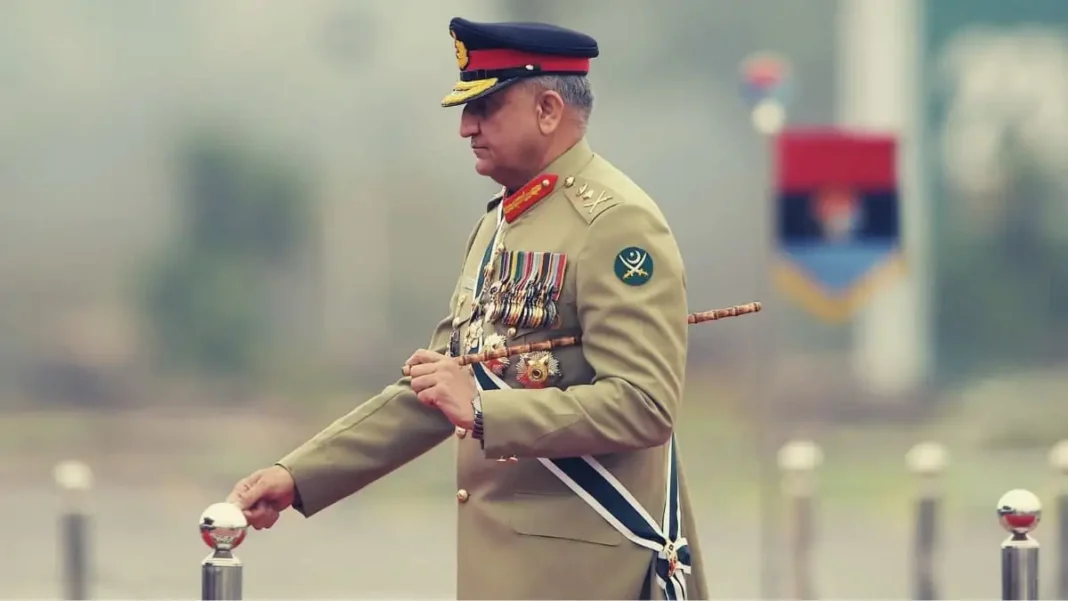Army’s Role In Politics
The Pakistan army’s first intervention into politics was as early as 1958, led by General Ayub Khan, who abolished the constitutional regime established by the 1956 Constitution. Subsequently, the military would stage three coups in October 1958, July 1977, and October 1999.
Under Ayub Khan and Yahya Khan

In the first military coup, Pakistan President Iskander Mirza abrogated the Constitution and declared martial law, and appointed General Ayyub Khan as chief martial law administrator. Days later, Ayub Khan overthrew Iskander Mirza. Since this incident, the army in Pakistan has always been in control. Under Ayub Khan and Yahya khan Pakistan was under military rule until the loss of the 1971 war which was the biggest setback for the Pakistani army.
Under General Zia Ul Haqh
With the adoption of a new constitution in 1972, Zulfikar Ali Bhutto became the first prime minister of Pakistan, though democracy did not last long when General Zia Ul Haqh took power in a bloodless coup and ruled under martial law. But under Zia Pakistan Army expanded its presence in the administration with increasing military involvement in wide-ranging administrative activities, from managing essential services and monitoring state-owned schools to conducting the census and building non-military roads. Today, the military, under democratic governance, has wider and deeper participation in civil administration than it had during the martial law regimes.
Under General Pervez Musharraf

For the third time in 1999, General Pervez Musharraf took over Pakistan and declared himself the President of Pakistan. To tighten the control of the army over the political parties Musharraf established the National Accountability Bureau (Pakistan’s apex anti-corruption organization), which is usually run by former military personnel, to ban opposition leaders from participation in parliamentary elections under allegations of corruption. To maintain power over security policy and ensure a strong budget for the military, Musharraf created the National Security Council which comprises the chiefs of all military services and is in charge of making decisions about defense and national security policies to increase the military’s role in policymaking in Pakistan.
The Crux of the Matter
Pakistan provides an example of how the military has been able to govern the country as successfully as a civilian government. In order to justify its existence, it kept the Kashmir issue and invasion threat from India where a strong army was considered a necessity for the existence of the country along with the ideology, which has been repeatedly advocated by every Pakistan Army chief, is Islam, which acted as a national unifier and garnered support in the endless conflict with India of course of which they lost all, ultimately ended up disaster for them.
But Let’s Talk About The Effect Of Military Junta On Armed Forces And Overall On The Country
Why Military Should Not Interfere In Civil Administration?
- Armed force’s primary job is to protect the national border and ensure the security of the state. Other than this assisting civilian government in times of contingency like flood, pandemic etc.
- Excessive involvement of the military in terms of time and manpower in non-military matters is not advisable for the armed forces.
- Military taking control over the administration by expelling civilian government leads to increase in competition and conflict within the armed forces for power.
- As said earlier, role of armed forces is to wage war against the external enemy but it’s Involvement in civil administration increases the possibility of corruption, that ruins the discipline inculcated among the personell.
- Military rule increases the probability of subsequent military coup which not only exposes their lack of acceptance of civilian supremacy but also erodes the faith of citizens on their armed forces.`
- When Civilian government assumes authority it will be extremely suspicious regarding the strengthening of capabilities of armed forces and there will be great amount mistrust between civilian authority and military leaders, which would be detrimental to National security.

Effects of Military Rule On Democracy And On Country
- Democratic institutions like judiciary or be it parliament and democratic values like freedom of speech, right to protest, Liberty will take a serious blow upon staging a coup by armed forces, it might even take decades to rebuild these institutions and restoring peoples faith in these institutions.
- Since the military leaders have limited exposure to media, the press would not be able to perform its task as a watch dog and unable to exposes the misdeeds done by the administration and moreover military does not encourage freedom of press.
- Incorporation of Military officer into bureaucracy, intelligence, police is not only desirable but also leads to extensions of it’s tentacles into domains, running these offices for longer periods causes erosion of civilian control over these domains.
- Political leadership which cannot afford to start a war so easily owing to the fact of accountability and has to face with the probing press and would be answerable to parliament, where as military junta(administration) neither have any such compulsion nor any accountability.
- Creation of evil nexus between the military and political parties who wish take to power with help of military, this would open new window for both political parties and military officers to engage in corruption putting country’s development at stake.
- The country would have to face international isolation as well as economic sanctions which would hurt country’s economic growth leading to all sorts of problems like rise in poverty, degradations of life style, crime, law and order situation etc.

